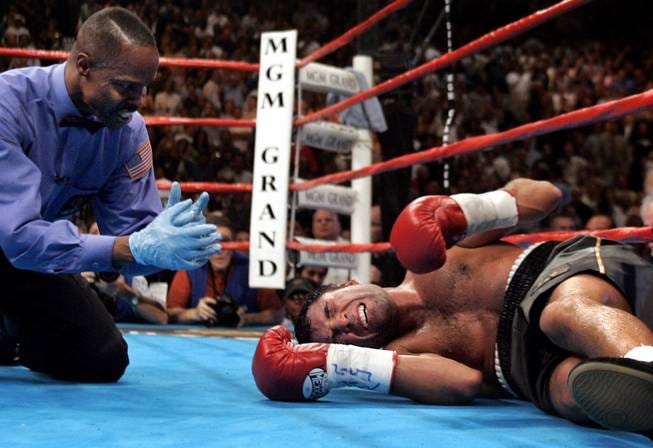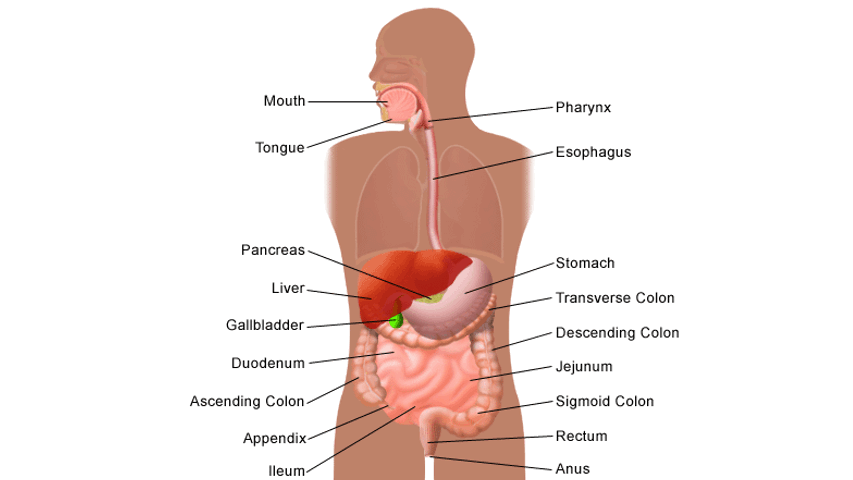In 2004, boxing icon Oscar De La Hoya suffered the first knockout of his career against Bernard Hopkins.
The cause, a blow to the head, you may imagine?
No, a thunderous left hook to the liver.
A well-placed liver shot is paralyzing. It makes it difficult to breathe, and the pain is unbearable.
The size of a football (the American kind), the liver sits under the right rib cage. It’s the body’s largest internal organ and holds about a pint of blood at any moment.
In one of the most famous scenes in cinema history, Hannibal Lecter, the psycho-cannibal serial killer of The Silence of The Lambs, eerily confessed: "I ate his liver with some fava beans and a nice chianti".
It’s a big and juicy organ. If I were a cannibal, I’d probably do the same.
The liver is a biological marvel. It works like the body’s Swiss Army knife, processing more than 500 vital bodily functions.
Here are five:
It creates bile, a special fluid that helps digestion, breaking down and absorbing fats in the small intestine. It also helps with blood clotting. When we get a cut, our body uses special agents called coagulants to stop the bleeding. Blood clotting coagulants are created using vitamin K, which can only be absorbed with the help of bile.
Every drop of blood leaving our stomach and intestines makes a pit stop in the liver. Here, the liver acts like a filter, catching and getting rid of toxins and other nasty stuff. This includes bacteria, which can cause infections.
Amino acids are the building blocks for proteins. The liver ensures we have just the right amount of amino acids in our blood for protein creation.
Think of the liver as a storage locker. It stores essential vitamins like A, D, E, K, and B12. Not just that, it also keeps reserves of minerals like iron and copper.
Whenever there's extra sugar (glucose) in our blood, the liver stores it as glycogen, saving it for a rainy day. When energy is needed, it converts it back to glucose, releasing it into the bloodstream.
The American physician, Dr Thomas Starzl performed the first human liver transplant in 1963. These days, transplants are relatively common.
Another remarkable attribute of the liver is that it is regenerative - i.e. you can remove two-thirds of it, and it will grow back in just a few weeks. This means that transplants are done not only using organs from deceased donors but also from parts of livers from living donors.
Although resilient, many ailments are gunning for your liver, cancer, hepatitis, and genetic disorders, to name a few. As most readers enjoy the odd tipple, let’s focus on those caused by drinking alcohol - a common cause of liver disease.
In the history of music, few voices were smoother than that of 1940s jazz icon Billie Holiday. But behind the soul-stirring melodies, she battled alcoholism and drug addiction. In 1959, she died of liver disease caused by prolonged heavy drinking. She was only 44 years old.
The liver’s job is to break down alcohol, but if you drink more than it can process, it can become damaged. So how many drinks can the liver safely process? I haven’t found a definitive answer to this, but research indicates that the answer seems to be two drinks on a single day (so you can’t save your weekly quota for a Saturday night binge). Sad face.
When your liver filters alcohol, some of the liver cells die. Although it can develop new cells, drinking too much over many years can reduce its ability to regenerate. Common alcohol-related ailments are:
Fatty Liver, also known as alcoholic steatosis, is the accumulation of excessive fat in the liver and is the earliest stage of alcoholic liver disease. It rarely causes significant symptoms and is reversible, but it's a vital warning sign that you're drinking a harmful amount.
Alcoholic hepatitis is inflammation of the liver. It's more severe than fatty liver and can be life-threatening. It can develop after many years of heavy drinking but can also be caused by binge drinking over shorter periods.
Cirrhosis is the advanced scarring of the liver tissue resulting from long-term, continuous damage. It’s what killed Billie Holiday. It is the most severe form of alcoholic liver disease and is irreversible. Management focuses on slowing the progression, managing complications, and, in advanced cases, liver transplantation.
I find that the more you learn about your body, the more you respect it and treat it well. It becomes easier to say no to things you know are bad for your body.
The brain and the heart usually steal the limelight, but the liver is an unsung workhorse that keeps you alive. Remember to give it the love it deserves.
If you enjoyed today’s article, please LIKE it 👍 or SHARE it ✉️ with a friend.
Have a super weekend.
👇👇👇👇👇👇👇👇👇👇👇👇









Another good one Rob 👍🏼 On the liver transplant stats, one would expect Africa’s liver transplants to be low vs other regions but zero seems unusual? Even SA alone surely had few, no?